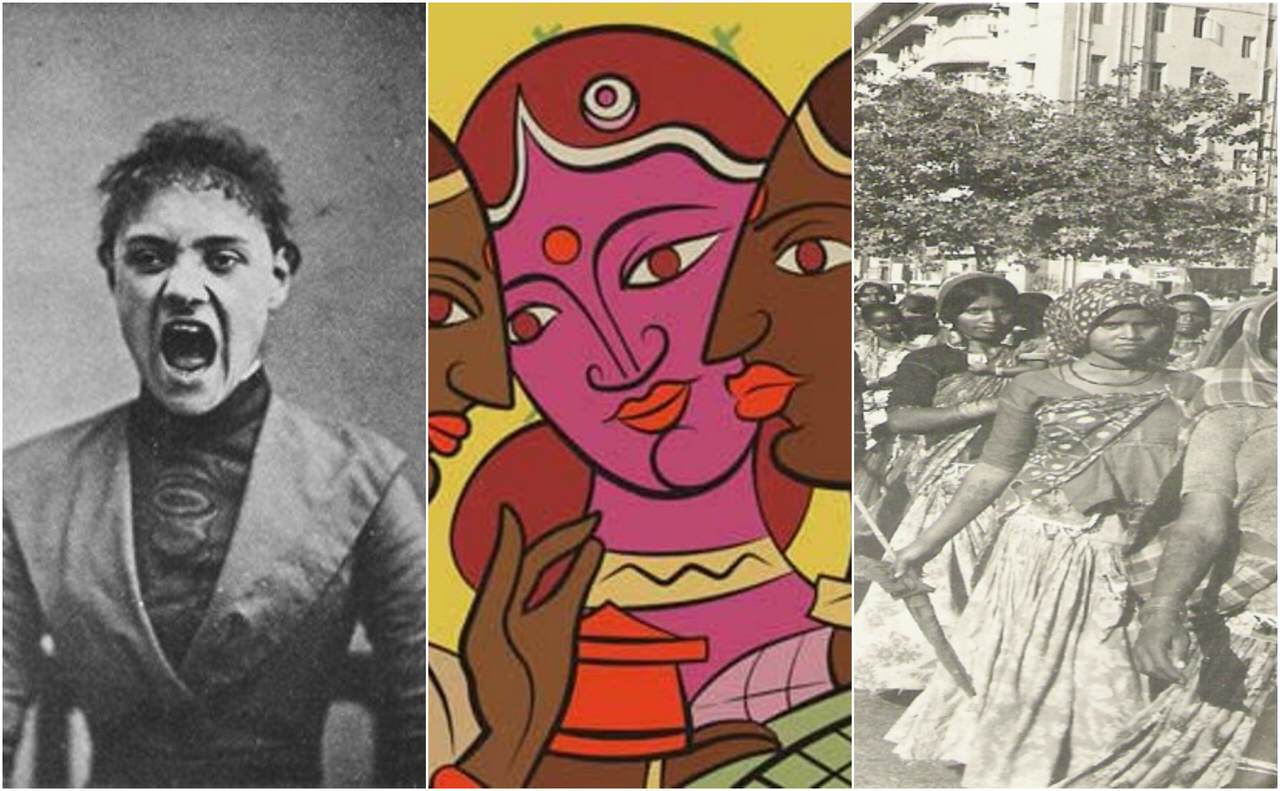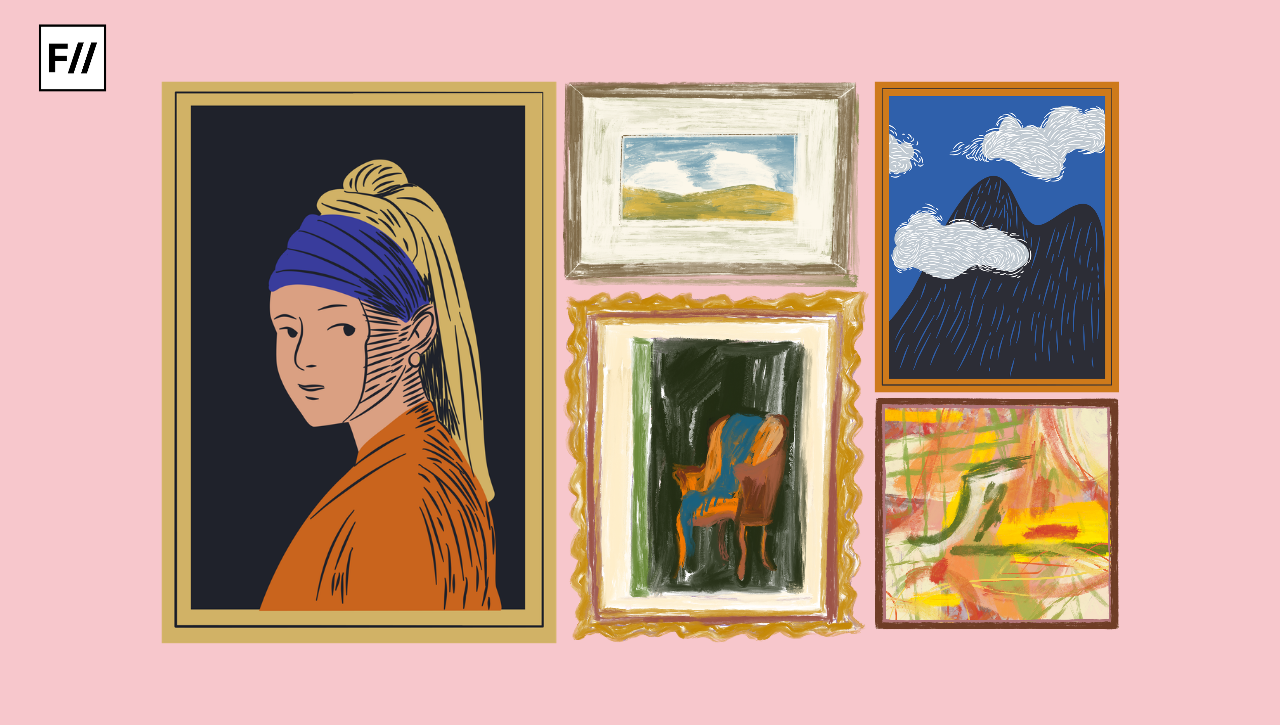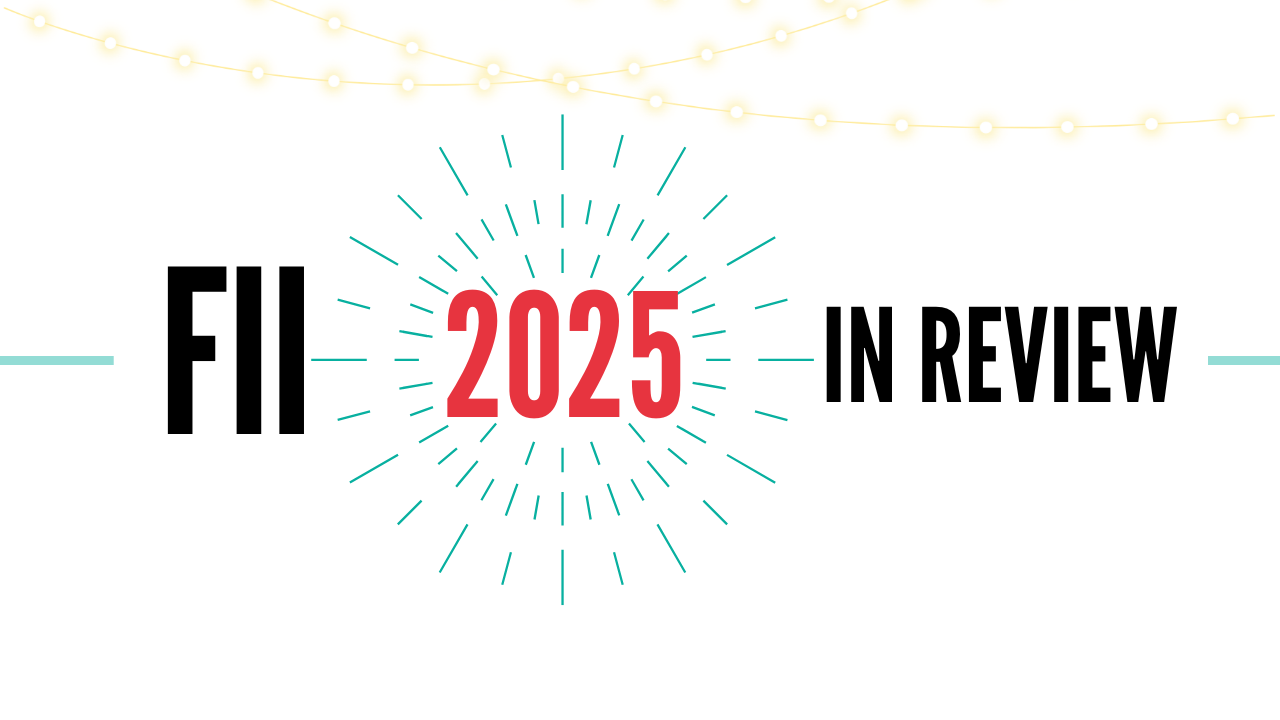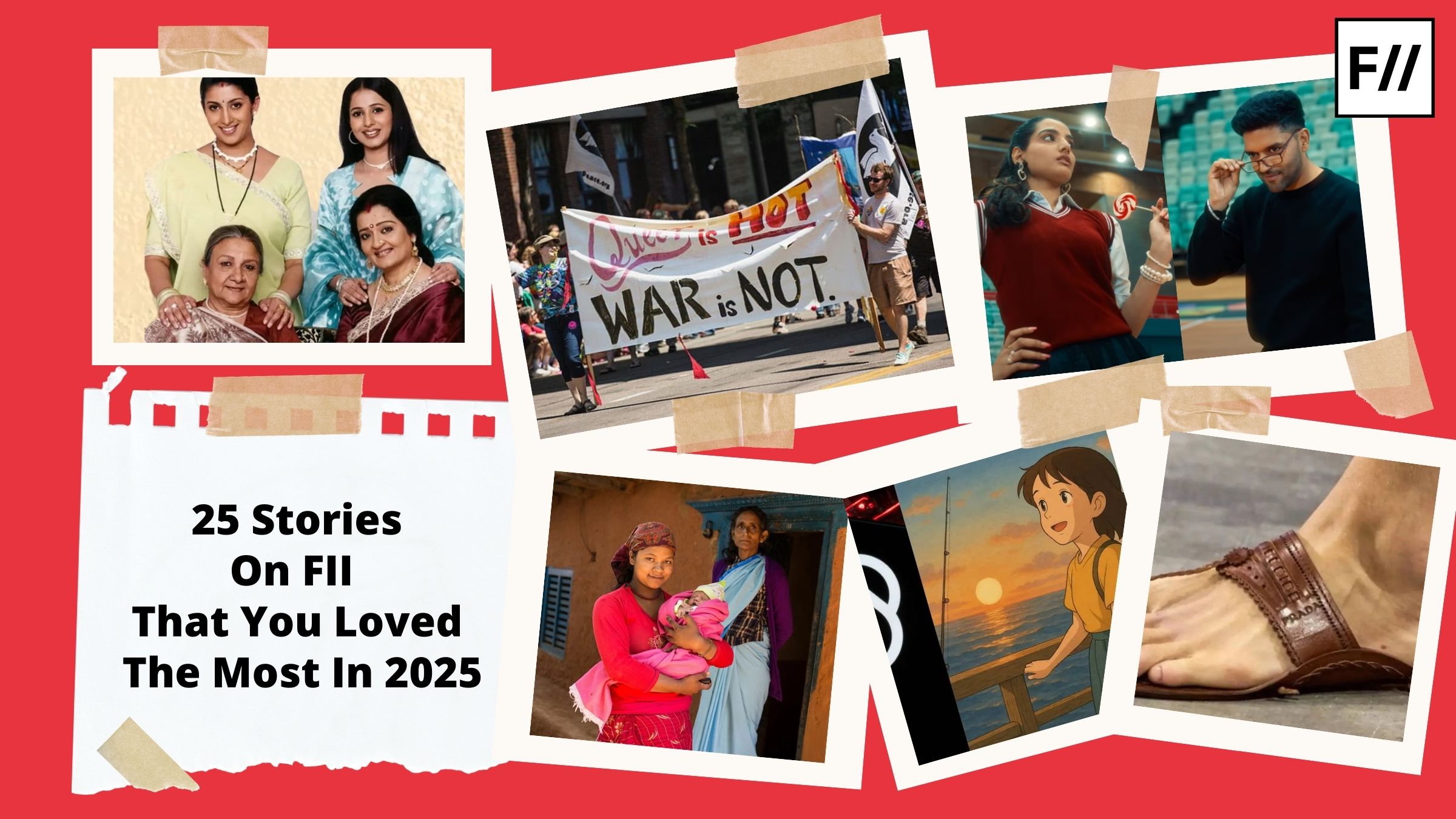As the year comes to an end, we bring you the top 17 stories on FII that were loved by YOU the most in 2017. Is your article featured below? Check out!
1. 6 Books By Dalit Women Writers Exploring Lives Lived On The Margins Of Caste And Gender by Vaishnavi Mahurkar
“Dalit women’s voices have been inadequately represented or sometimes completely erased from the literary canon. Other times, Dalit women have been represented in romanticized narratives, without a real examination of their marginalized position in the hierarchy of caste and gender…”
2. Analysing ‘Women Are Women’s Worst Enemies’ Or Patriarchal Bargain by Sreeparna Chattopadhayay
“If we examine the words individually, bargain is a process of negotiation sometimes involving compromise for one or both parties, where both stand to profit from that negotiation. Thus there’s a continuous negotiation that women undertake, much of which not consciously, to have access to some power within patriarchy…”
3. Let’s Talk About Period Leave For Dalit And Tribal Women by Shradha T K Lama
“Let’s start with the realities at ground zero; sanitary napkin in India is accessible to only 12 percent of the female population. The increasing price over the years has made it more and more inaccessible to a majority of women. Speaking of inaccessibility, to dispatch to a deeper ground, let’s talk about the social order incumbent in India. Caste forms the basis of the social order in North and South India and the North East with its various tribal societies has its own culture and practices…”
4. Why Doesn’t Aishwarya Rai Get Enough Credit For Being A Domestic Violence Survivor? by Tanika Godbole
“Had this happened in 2017, with the #MeToo movement gaining ground, maybe Aishwarya would have received the support and respect that she deserved. She showed strength and got out of an abusive relationship. She spoke up against it. She continued going to work in spite of Salman creating a ruckus there as well…”
5. Why I Am Not So Fond Of F.R.I.E.N.D.S Anymore by Shinjinee Mishra
“After all these years of popularity, it is really necessary to look at F.R.I.E.N.D.S from a gendered perspective and see how it reflects and exaggerates the stereotypes of society in its own way. Now the series makes me cringe and sit with a straight face rather than laugh at all the scenes that portray the racism, sexism, homophobia, transphobia and gender stereotypes engraved in the society around us…”
- Reading Caste In Holi: The Burning Of Holika, A Bahujan Woman by Pradnya Waghule
“So what is Holi really about? As K. Jamnadas points out in Holi – A Festival To Commemorate Bahujan Burning, it is a holiday premised on Bahujan burning. In the same piece, he points out how the festivities around this day are indirectly connected to Hiranyakashyapu. From the many versions of the story behind the festival—which involves burning a pyre one evening, and celebrating with colours the next—the one constant, is that it was a part of Narasimha’s scheme to save Prahlad’s life…”
7. Sikh Names: Beyond Gender, Caste And Patriarchy by Jasveen Kaur Sarna
“Additionally, Kaur gives me freedom from patriarchal lineage and erases the tradition of changing names after marriage. The emphasis is put off of the family, and in turn placed on the individual, making it so that women have an identity as entities distinct from the men in their families…”
8. The History Of ‘Hysteria’ And How Science Can Be Sexist by Mitsu Sahay
“One of the most bizarre theories was given by Hippocrates in his theory of ‘wandering wombs’. It was followed by Plato’s argument that the uterus, a living being, felt sad and unfortunate when it did not meet its male counterpart. This sadness led it to wander inside the body seeking satisfaction, and caused symptoms of madness by putting pressure on other organs…”
9. How Caste Gets Clickbaited: My Point Of View by Shivani Channan
“Savarna editors are very meritorious in cluelessly propagating caste stereotypes. They have messed up a powerful article with that headline. Why can’t they choose a headline that’s reflective of the core theme of the essay, which is reclamation of human dignity?…”
10. ‘Inspiration Porn’ And Deconstructing The ‘Disabled People Are So Inspiring’ Stereotype by Abha Khetarpal
“Like all people with disabilities, I had been the object of comparison all through my life for my family members, my cousins and my friends. According to them, I had been ‘brave’ as if existing with disability was an accomplishment. Now people even get ‘inspired’ to see me married to a non-disabled man at a late age of 48. I can never understand what is so inspirational about this!…”
11. Is Menstrual Blood Really Impure? A Scientific Take On Myths & Facts Of Menstrual Discharge by Bharti Kannan
“Where does this blood component come from? The endometrial lining is made of a layer of cells that is supplied with blood by spiral arteries that determine the thickness of the lining by a complex hormonal pathway. During the menstrual phase of the cycle, the hormonal play cuts off the arterial supply, leading to death of the endometrial tissue and in turn bleeding of the accrued blood in the connective tissue…”
12. Kamala Das – The Mother Of Modern Indian English Poetry by Sheryl Sebastian
“Kamala Das was one of the most prominent feminist voices in the postcolonial era. She wrote in her mother tongue Malayalam as well as in English. To her Malayalam readers she was Madhavi Kutty and to her English patrons she was Kamala Das. On account of her extensive contribution to the poetry in our country, she earned the label ‘The Mother of Modern Indian English Poetry’. She has also been likened to literary greats like Sylvia Plath because of the confessional style of her writing. On the occasion of her birth anniversary, we look into the remarkable life of this literary icon…”
13. In Search Of The Mythical Concept Of Virginity by Maryam Mansoor
“The yardstick for measuring whether a woman is good or bad has always been associated with her virginity. According to societal standards, “good women” are those who abstain from sex until their marriage whereas anyone who deviates from this standard is a “bad woman”. A woman’s morality is questioned based on the status of her virginity…”
14. NALSAR University Of Law: Sexism & Casteism Behind A Liberal Facade by Sanjeev Gumpenapalli
“This is where construed hierarchies brood, masculinity takes new shapes in ragging and the oppressed becomes the oppressor with new students coming in here. National Academy for Legal Studies and Research (NALSAR) is an aesthetically beautiful academic space that is situated in the land of many important civil movements in the country – Telangana…”
15. ‘Karukku’: An Autobiography By Bama Exploring Her Tamil, Dalit And Christian Identity by Amala Dasarathi
“Karukku is an autobiography that chronicles Bama’s life, from her childhood to her early adult life as a nun, and beyond. The book was originally written by her in Tamil in 1992 and translated into the English version that I read by Lakshmi Holmstrom in 2000. Karukku is one of the first autobiographies of a Dalit woman written in Tamil…”
16. The Ramjas College Incident And The Corruption Of Nationalism by Richa Thakur
“Continuous chants of “Bharat Mata Ki Jai” and “Vande Mataram” continued amidst threats of physical violence. The ABVP mob (almost all men) were groping students (men and women alike) and saying “Azadi chahiye tujhe? Main batata hun” (You want freedom? I will tell you). They also said that they would only allow the students to exit if they said “Vande Mataram”…”
17. TISS Women’s Studies Centre Faces Threat Of Closure: Another Space of Dissent Silenced? by Shamolie Oberoi
“The possibility of shut down of Centres dealing with the study of marginal identities is only a logical extension of the current political climate – where dissenting voices in higher education (and everywhere else) have been violently, systematically silenced and MPhil and PhD seats have been cut drastically.…”
Also read: 16 Stories On FII That You Loved The Most In 2016
About the author(s)
Feminism In India is an award-winning digital intersectional feminist media organisation to learn, educate and develop a feminist sensibility and unravel the F-word among the youth in India.




